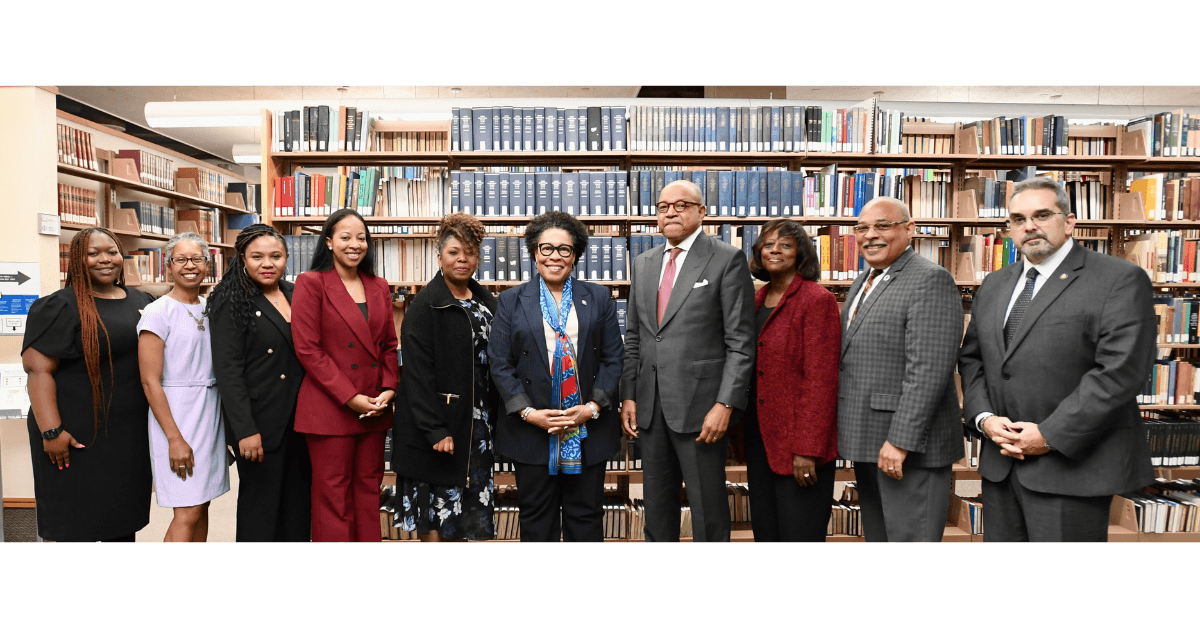KEY INSIGHTS:
- Housing and Urban Development Secretary Marcia Fudge met with leaders from Atlanta HBCUs to discuss ways the federal government can help address housing issues that have plagued HBCUs.
- One year ago this month, Howard University students staged a month-long occupation of a student center to protest what they said were unsafe living conditions.
- HUD has loans, grants and other resources to help HBCUs and their students with housing struggles.
On Thursday, Housing and Urban Development (HUD) Secretary Marcia Fudge met with leaders from the Atlanta University Center Consortium, Morehouse College, Morehouse School of Medicine and Spelman College to discuss ways the federal government can help address housing issues that have plagued HBCUs.
“I met with the HBCU presidents and with their representatives to talk with them about how we can make the student experience better by providing better housing, by assisting them with using the resources they have, to tell them what resources we can give them to make what they are trying to do easier, more effective,” Sec. Fudge told reporters.
The visit coincides with the one-year anniversary of the Blackburn Takeover, a protest by Howard University students over what they said were unsafe living conditions in their dorms. The month-long occupation catapulted housing issues at HBCUs to national prominence.
While these problems are not new, nor are they specific only to Black colleges, HBCUs have been systematically underfunded compared to their predominantly white peers and struggle with multi-million dollar deferred maintenance backlogs, repairs that were not performed when they should have been.
But HUD can help HBCUs fund housing initiatives through loans and grants that schools may not be able to build without outside support.
“The one thing that we found out today is that most HBCUs do have land,” Sec. Fudge told The Plug. “They may not always have the resources to develop that land, but we can help them develop it. That is what we do.”
HUD can also act as a facilitator between the HBCU, its city and the local community to help corral more resources for housing, she explained.
Building more housing is imperative for the Atlanta University Center (AUC), where some students are homeless and “couch surfing,” Michael Hodge, executive director of the AUC Consortium, said.
“We have a certain number of beds on our campuses, but we see many more students in those residence halls than there are beds to accommodate,” Hodge told reporters.
“Because of the cost of housing in the community just going up and up, students have been priced out and they become creative. They either have to move extremely far away from the campus to find reasonable, affordable homes, or they couch surf, they live with their friends and they bump from friend to friend to friend,” he added.
In Atlanta, the average monthly rent for a one-bedroom apartment is $1,961, according to Rent.com, which is up four percent from a year ago. In the West End, where the AUC is, prices trend lower for a one-bedroom — $1,400 a month — but are still expensive for most students.
The AUC currently spans 600 acres, most of which is filled by the school campuses, an AUC spokesperson told The Plug. But constructing more dorms, while an important and necessary endeavor, is a long-term solution to housing issues that are directly impacting students’ lives right now.
In the short term, students struggling with homelessness can see a housing counselor. HUD has a national network of participating agencies that can help students free of charge with emergency housing vouchers and finding rental properties, Sec. Fudge said.
“Students are oftentimes reluctant to come forward and express their needs, particularly our population of students, they’re pretty resilient, and so when we do find out about it, there are people in place and resources in place to try to help them,” Hodge added. Alumni donations have created specific funds to help students with housing costs around the AUC.
Ultimately, the housing crisis plaguing HBCUs and the communities around them is the result of decades of federal, state and local policy choices that cannot be solved by just one agency.
“It is important for every single group of people — from the mayor to HBCUs to all of the people who have the ability to make change — to come together and make that change,” Sec. Fudge said. “We can’t work in silos and take care of entire communities, we have to work together.”








